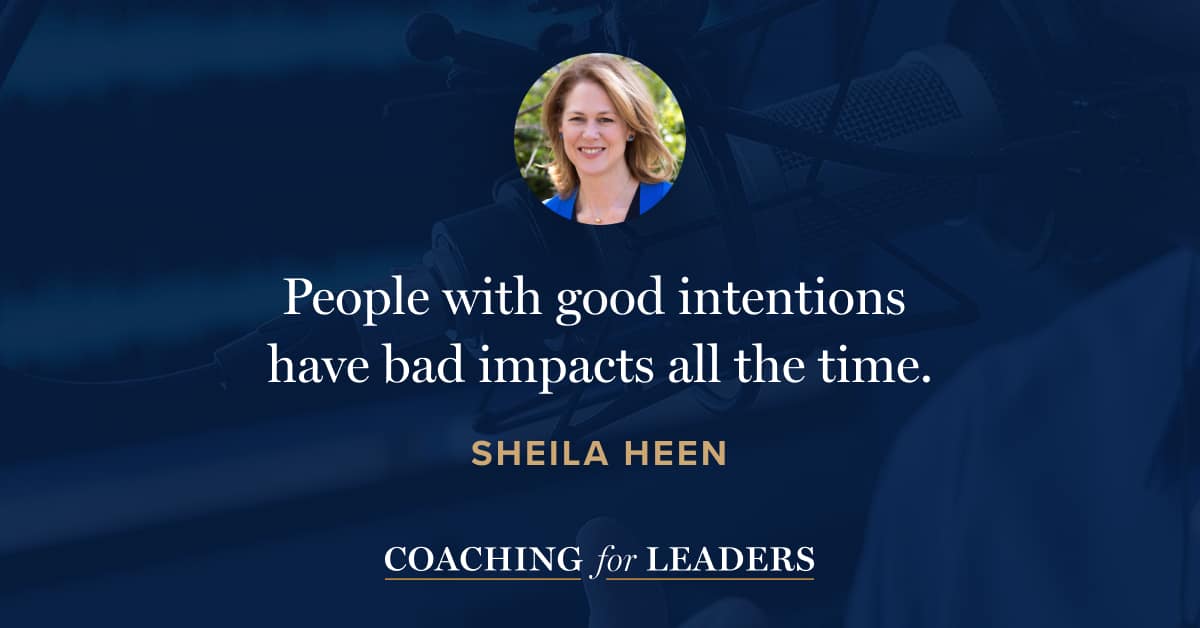Sheila Heen: Difficult Conversations
Sheila Heen is the Thaddeus R. Beal Professor of Practice at Harvard Law School, a Deputy Director of the Harvard Negotiation Project, and a founder of Triad Consulting Group. She often works with executive teams to engage conflict productively, repair working relationships, and implement change in complex organizations.
She has published articles in The New York Times and the Harvard Business Review and appeared on Oprah, CNBC’s Power Lunch, and NPR. She is coauthor along with Douglas Stone of The New York Times bestseller Thanks for the Feedback and also now, in its third edition, co-author with Douglas Stone and Bruce Patton of the iconic bestseller, Difficult Conversations: How to Discuss What Matters Most*.
When our intentions are good, it’s hard to appreciate how we could have had such negative impact on someone else. It’s equally challenging to navigate a tough conversation when someone else’s words or actions have wronged us, even if that’s not what they intended. In this conversation, Sheila and I discuss how to shift just a bit to help our difficult conversations go better.
Key Points
- Intent does not equal impact.
- It’s a mistake to assume that we know the other party's intentions.
- It’s a mistake to assume that good intentions erase bad impact.
- Prevent the first mistake by attempting to separate intent from impact. Use these three questions:
- Actions: What did the other person actually say or do?
- Impact: What was the impact of this on me?
- Assumption: Based on this impact, what assumption am I making about what the other person intended?
- To present the second mistake, listen first for feelings before sharing intent. It’s helpful also to reflect on your own intent, which may not always be as pure as initially recognized.
Resources Mentioned
- Difficult Conversations: How to Discuss What Matters Most* by Douglas Stone, Bruce Patton, and Sheila Heen
Interview Notes
Download my interview notes in PDF format (free membership required).
Related Episodes
- How to Get Way Better at Accepting Feedback, with Sheila Heen (episode 143)
- How to Begin Difficult Conversations About Race, with Kwame Christian (episode 594)
- How to Deal With Passive-Aggressive People, Amy Gallo (episode 595)
Discover More
Activate your free membership for full access to the entire library of interviews since 2011, searchable by topic. To accelerate your learning, uncover more inside Coaching for Leaders Plus.





